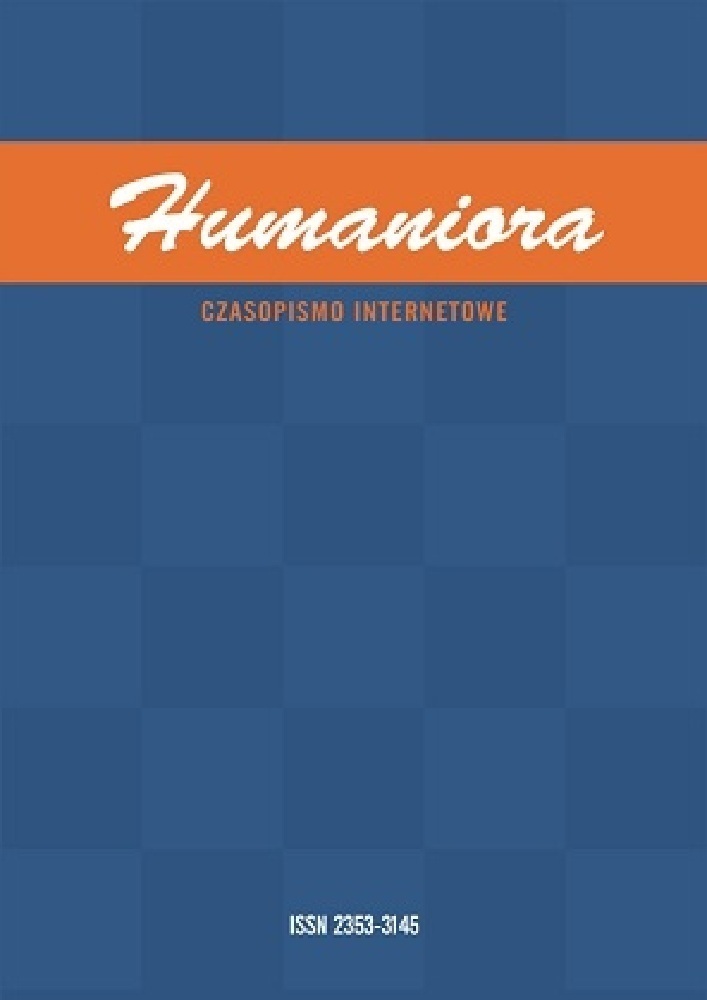Abstrakt
The purpose of the considerations carried out is to determine the nature of the relationship between business ethics and economics, and in particular to demonstrate that the axiological reorientation taking place in the economic sciences today opens space for overcoming differences regarding the assumptions adopted in both disciplines that characterize business practice. The author poses a key question: is it possible to see any basis for building a common or at least similar position representative of both the community of economists and business ethicists? Answering it requires, firstly, pointing out the differences in the ways of understanding economic phenomena adopted in ethics and economics; and secondly, taking into account the current state of the world and the need to adopt voluntary restrictions on the impact on the natural environment. A prerequisite for at least a partial reconciliation of the ethical and economic vision of the economy is a change of thinking in economics – the adoption of the perspective of post-growth economics and economics of restraint.
Bibliografia
Carroll A., Corporate Social Responsibility: Evoluaton of a Definitional Construct, „Business & Society” September 1999. DOI: https://doi.org/10.1177/000765039903800303
Colander D., The Death of Neoclassical Economics, „Journal of the History of Economics Thought” 2000, vol 22, no. 2. DOI: https://doi.org/10.1080/10427710050025330
Crane A., Matten D., Moon J., The emergence of corporate citizenship: historical development and alternative perspective, w: Handbook of research on global corporate citizenship, eds. A.G. Scherer, G. Palazzo, 2008. DOI: https://doi.org/10.4337/9781848442924.00008
Crook C., The good company. The sceptical look at corporate social responsibilit, „The Economist” 2005, January 22.
DeMartino G., McCloskey D., Introduction, w: The Oxford Handbook of Professional Economic Ethics, eds. G. DeMartino, D. McCloskey, Oxford Handbooks Online, 2016. DOI: https://doi.org/10.1093/oxfordhb/9780199766635.013.001
Frederick W.C., Corporate Social Responsibility: Deep Roots, Flourishing Growth, Promising Future, w: The Oxford Handbook of Social Corporate Responsibility, eds. A. Crane, D. Matten, A. MacWilliams, J. Moon, D.S. Siegel, Oxford University Press, Oxford 2009. DOI: https://doi.org/10.1093/oxfordhb/9780199211593.003.0023
Frederick W.C., From CSR₁ to CSR₂. The Maturing of Business-and-Society Thought, „Business & Society” 1994, vol. 33, no. 2. DOI: https://doi.org/10.1177/000765039403300203
Frederick W.C., Moving to CSR₄. What to Pack for the Trip?, „Business & Society” 1998, vol. 37, no. 1. DOI: https://doi.org/10.1177/000765039803700103
Hausner J., Społeczna czasoprzestrzeń gospodarowania. W kierunku ekonomii wartości, Wydawnictwo Nieoczywiste, Warszawa 2019.
Klamer A., A pragmatic view on values in economics, „Journal of Economic Methodology” 2003, vol. 10, issue 2. DOI: https://doi.org/10.1080/1350178032000071075
Matten D., Crane A., Corporate citizenship: toward dan extended theoretical conceptualization, „Academy of Management Review” 2005, vol. 30. no 1. DOI: https://doi.org/10.5465/amr.2005.15281448
Porter M.E, Kramer M.R., Creating Shared Value, „Harvard Business Review” 2011, no. 89.
Valor C., Corporate Social Responsibility and Corporate Citizenship: Towards Corporate Accountability, „Business and Society Review” 2005, vol. 110, issue 2. DOI: https://doi.org/10.1111/j.0045-3609.2005.00011.x
Zboroń H., Obywatelskość w praktyce gospodarczej. Od CSR do biznesu obywatelskiego, w: Nowe tendencje w zarządzaniu, t. 8, red. M. Pawlak, 2019.
Licencja
Prawa autorskie (c) 2024 Halina Zboroń

Utwór dostępny jest na licencji Creative Commons Uznanie autorstwa – Bez utworów zależnych 4.0 Międzynarodowe.
Czasopismo oraz wszystkie zamieszczone w nim materiały są powszechnie dostępne i mogą być wykorzystywane do celów naukowych, edukacyjnych, poznawczych i niekomercyjnych bez konieczności uzyskiwania każdorazowej zgody autorów i redakcji. Nadesłanie artykułu do publikacji traktowane jest jako zgoda autora na udostępnienie swojej pracy i informacji w niej zawartych do powyżej wymienionych celów. W takich przypadkach należy jedynie wskazać źródło, z którego zaczerpnięte zostały informacje. Pobieranie opłat za dostęp do materiałów zawartych w czasopiśmie lub ograniczanie do niego dostępu jest zabronione.
Przesyłane do redakcji teksty muszą stanowić oryginalne prace, uprzednio nigdzie niepublikowane ani nie przedkładane innym redakcjom lub wydawcom. Autorzy nadsyłanych artykułów ponoszą odpowiedzialność za uzyskanie zezwoleń na publikowanie materiałów, do których prawa autorskie są w posiadaniu osób trzecich. Publikacja materiałów chronionych prawem autorskim jest możliwa pod warunkiem uprzedniego dostarczenia przez autora do redakcji pisemnej zgody właściciela praw autorskich.





